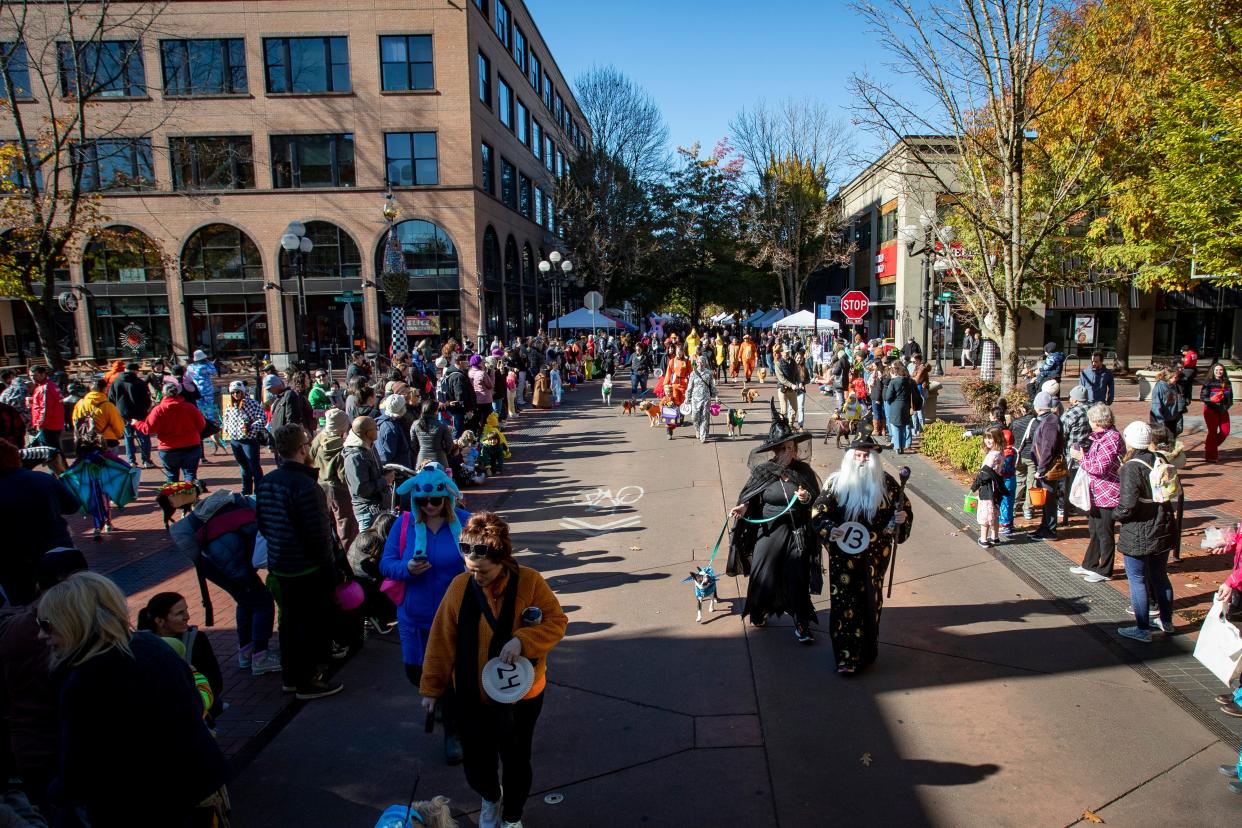Eugene Police launch new plan to make downtown feel safe, support mental health
The Eugene Police Department is rolling out a new program aimed at diverting police from non-emergency calls involving people experiencing a behavioral health or life crisis in downtown Eugene.
According to Eugene Police, the department has rolled out Phase 1 of the Co-Responder Program by hiring and staffing a Lane County master's degree level qualified mental health professional, master's degree licensed clinical supervisor, and officers downtown.
The goal of the new alternative police response model, funded by the Community Safety Payroll Tax, is to have a behavioral health professional responding alongside police in order to improve downtown safety, increase access to behavioral health services, and decrease people's repetitive encounters with the criminal justice system.
"These folks just have a real heart for these individuals that are suffering with behavioral and mental illness," Eugene Police Chief Chris Skinner said. "More importantly, they have a depth of resources they can bring to the table to help people get on the path of wellness and if we stabilize folks downtown, then that's good for us because then we don't have police officers responding to calls for service."
Eugene Police have received $550,000 in funding for the program from the U.S. Bureau of Justice Assistance, which will be "matched" by $254,854 in City funds.
Skinner said the department has been brainstorming methods to address the "unique needs" of downtown with respect to public safety, acknowledging there are people downtown not engaged in serious criminal behavior who are suffering from behavioral or mental health issues.
"We were thinking about how we can approach this from a public safety perspective a little bit differently and that's where the idea of actually a good relationship and contract with a behavioral health specialist in our downtown team came to fruition," Skinner said.
How will the Co-Responder Program operate downtown?
The co-responder team will include police officers and a qualified mental health professional who is supervised by the Forensic Intensive Treatment Team clinical supervisor. Together, the health professional and officer will go to calls for services involving people with mental health or substance use disorders and a history of frequent police contact.
The department says the co-responder team will work together to provide rapid access to psychiatric care, initiate clinical and case management referrals, provide triage, assessment and treatment, and support clients during court procedures.
According to Skinner, the people who are going to benefit most from the program are people engaged in lower-level criminal behavior due in part to their own mental wellness or lack thereof.
"So if we can come alongside those people, give them an alternative to jail, give them an alternative that says 'hey, we want you to get well, we want to get you stabilized,' and have the resources to be able to do that, then I think we end up improving the sense of safety downtown," Skinner said.
How is the Co-Responder Program different from CAHOOTS?
CAHOOTS is a free, unarmed mobile crisis intervention unit that was formally contracted with the department. Since the summer of 2023, CAHOOTS has been contracted with and under the budget and oversight of the Eugene Springfield Fire Department.
The co-responder program is different from CAHOOTS because it has the ability to "plug in Lane County resources" and include services and case management, according to the department.
The co-responder program also only serves downtown communities and responds to 911 calls that the mobile response unit would typically not respond to due to the potential risk and danger of the call.
"Sending a badge and a gun and a uniform to every one of these calls is not the way to go and so we need to think about how we do this differently," Skinner said.
Hopes for future expansion

Program expansion and Phase 2 of the co-responder program are expected to begin in late 2024, which would include the addition of another qualified mental health professional and a peer support specialist. This expansion would then expand the team to a total of two qualified mental health professionals, one peer support, one clinical supervisor, and two officers.
Regarding long-term goals for expansion, Skinner hopes for a "build it and they will come" opportunity with Lane County to secure funding for a stabilization center to treat people in behavioral health crises and connect them to long-term solutions.
"I can't be more supportive of an alternative for jail and that would be our first real alternative to jails if we had that stabilization center, so this is my opportunity to have EPD really back that initiative as we move forward," Skinner said.
Regarding short-term goals, the department wants to direct community members to resources.
"Let's think about if it has to be a criminal case, let's think about community court and think about specialty courts and deferring any kind of traditional criminal justice path in lieu of a wellness path for these individuals and our partners in Lane County have the resources to help us with that," Skinner said.
Haleigh Kochanski is a breaking news and public safety reporter for The Register-Guard. You may reach her at HKochanski@gannett.com.
This article originally appeared on Register-Guard: EPD launches program to promote safety downtown, support public health
